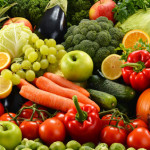
fresh produce from kenya
For the first time since a suggestion to eliminate produce export subsidies by the EU exporters, came up, farmers in Kenya can enjoy a free market abroad. This is after the World Trade Organization (WTO), on October 20, 2017 further reduced export subsidies by EU countries.
For years, EU exporters with subsidies have pushed food prices in the countries they export to marginally low. This has made it hard for developing agricultural economies like Kenya to compete.
Export subsidies refer to the collective EU governments’ support to farmers and exporters through financial and credit extension services. For example, the EU has been providing its agricultural sector with credit services, low or zero freight expenses and assistance for farmers to reduce cultivation costs.
This has had an effect on the world fresh produce market: it has deprived food-producing agricultural countries in the developing world of competitive market opportunity. Farmers from export subsidy sources export the same produce, cheaply.
With the WTO resolution, EU exporters may find exporting costs high, which is a lucky chance for Kenya farmers and importers, who will find a ready market in the EU.
After an initial proposal in 2011 to completely put a stop to export subsidies in 2001, it was not until 2015 that resolutions were passed. But the 2017 proposal that may take effect in February, 2018, is bound to be the most impacting.
Current fresh produce exports margin by Kenya to the EU measure 119 million Euro or KSH14.3 for vegetables. In the same 2016 financial year, animal products including dairy and skin, amounted to some 9 million Euro or KSH 1.1 billion.
EU countries with the largest arable land for cultivation include Malta and the UK. Currently, the EU grows fresh produce, with vegetables accounting for 2% of all its arable land devoted to fresh produce. Britain has the largest vegetable farming area in Europe.
Good News for EU Importers
The development is also good news for EU fresh produce importers from developing countries. Currently, they face stiff competition from the re-export market in the Netherlands, which uses export subsidies to engineer lower prices.
The European Union now has 28 members following the exit of Britain. The common market will need to ratify the farm export subsidy cuts of 2015 so that they can come into effect by early 2018.
So, with the subsidy cuts, developing countries can now compete fairly with their richer counterparts in Europe.

